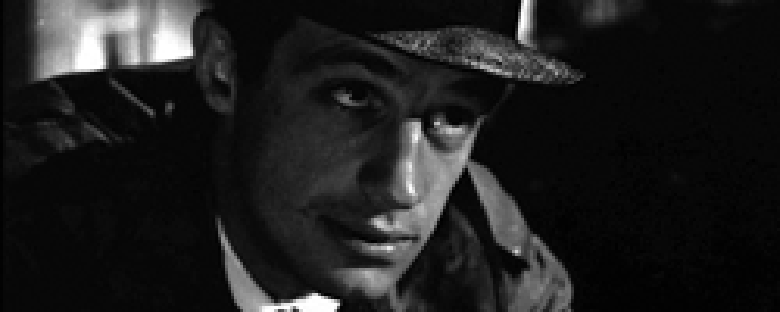Reviews
Jean-Pierre Melville
France, 1963
Credits
Review by Matt Bailey
Posted on 10 July 2004
Source British Film Institute DVD
Related articles
Reviews: Le Samouraï
Reviews: Army of Shadows
Reviews: Le Cercle Rouge
Just as we know that every character in a film by Ingmar Bergman or Robert Bresson is doomed froms the moment they appear on screen, so do we know that the hero of a film by Jean-Pierre Melville will probably not be alive at the end of the picture. So pessimistic is Melville’s view of the criminal underworld that even the most noble thief will surely meet his demise at the wrong end of a pistol before getting away with that one last heist. Melville’s heroes, though, are not simply damned characters in a bleak drama. They are, like those of Bergman and Bresson, figures of myth — archetypes for the human condition as tragic and as fated as Orpheus or Achilles.
In Le Doulos, the film Melville regarded as his first real policier despite the major success of Bob le Flambeur several years earlier, two underworld characters, seemingly working against each other, find themselves in a deadly entanglement of their own making but infinitely larger than the both of them. Maurice Faugel, a thief just out of prison, and the police informer known only as Silien are each working separately on what could amount to their last great job. The problem is that for Silien to succeed, he must betray his colleague Faugel. The plot that develops is so full of crosses and double-crosses as to make one’s head swim, a feeling that is only augmented when the explication of key events previously withheld from the audience is delivered at the end by the most untrustworthy individual in the film.
Melville’s complete absorption of American crime movies is on full display in Le Doulos, but the film never feels like a French version of an American movie. It is adapted from a novel from the famed Série Noire, the gigantic collection of French pulp crime novels from which film noir derives its moniker, and the author of the novel was believed to have had significant ties to the French criminal underground (as did Melville, it is alleged). Thus the story is thoroughly French, but Melville’s absolute mastery of the visual tropes of American film noir gives the film a style unique in French cinema of the time. The black and white cinematography by Nicolas Hayer (a veteran of films by Cocteau, Buñuel, and Clouzot) is stark and brooding, the score is pure late-night jazz, and the costumes (as per usual for a Melville film) consist chiefly of trench coats, skinny ties, and snap brim hats.
Jean-Pierre Melville is generally known for Le Samouraï, the magnificent film that gave Alain Delon one of his greatest roles, but Melville’s other films are well worth seeking out. The increasing availability of his films on both sides of the Atlantic should, in a just world, result in the rediscovery of one of the greatest post-war European filmmakers.
We don’t do comments anymore, but you may contact us here or find us on Twitter or Facebook.



